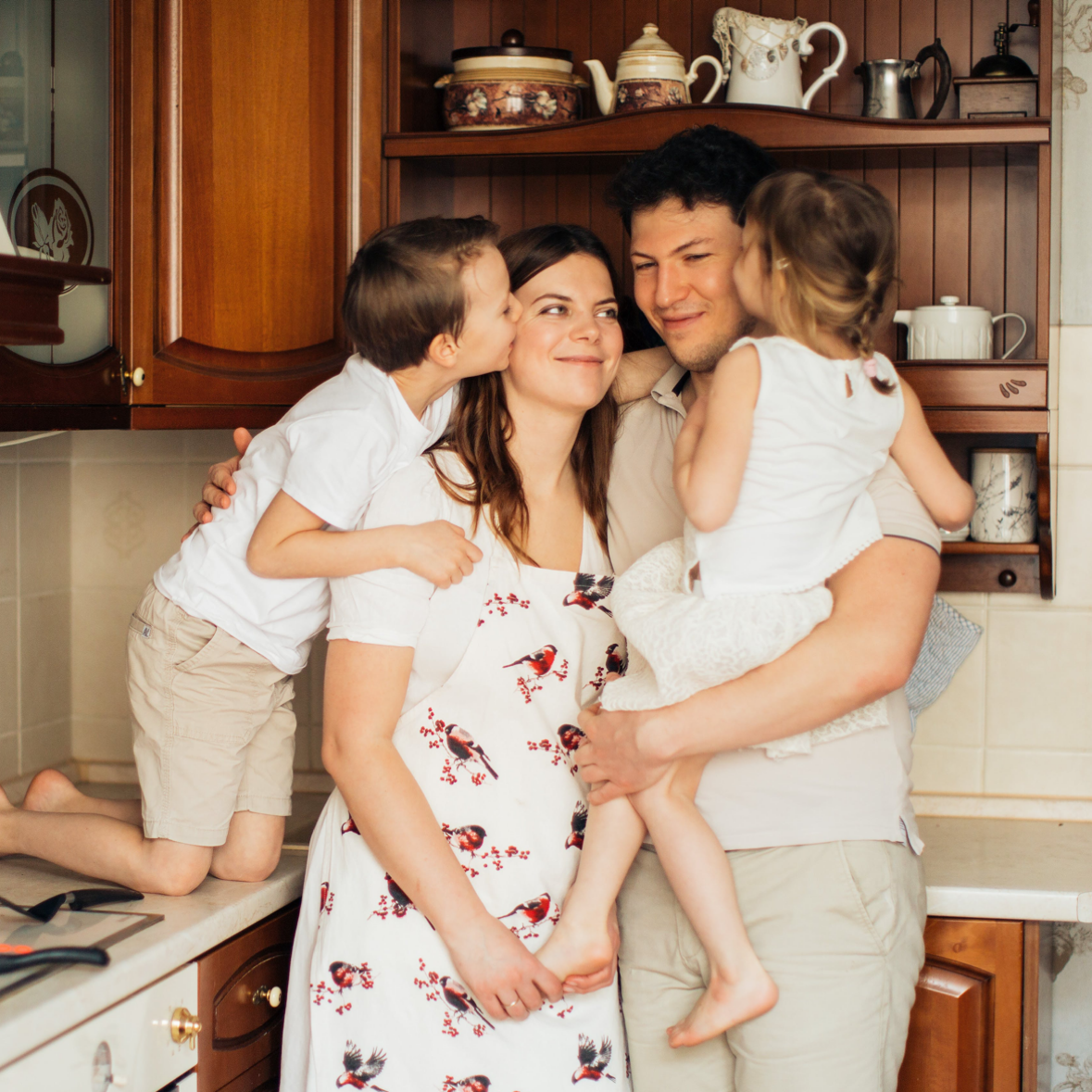
In Latin America, they call it piojito—literally, “little lice”—but parents all around the world use this special form of physical affection to bond with their children. The Spanish name hints at the basic technique: parents draw their fingertips over their child’s head, back, or arm in short, gentle strokes.
The resulting sensation might remind some people of little lice, but the effect is more magical, evoking a warm, cozy feeling—and a sense of closeness between the person giving and receiving the touch.
It turns out that lightly stroking the hairy parts of our skin at just the right speed activates special nerve cells called C-tactile fibers. The activated CT fibers signal the release of dopamine, which in turn lights up parts of the brain that process sensation, emotion, and reward. The resulting burst of pleasure motivates us to seek out the same connection again, strengthening the relationship.
We’re Hard-Wired for Physical Affection
But if the idea of imitating creepy-crawly little bugs turns you off, don’t despair. Piojito isn’t the only way to connect with your kids; many types of physical affection are just as effective.
What is most important, according to Dr. Greg Popcak, is for parents to be generous with appropriate physical affection.
“We’re hard-wired by God to long for affection and to want to be affectionate with each other,” Dr. Popcak says in a video on CatholicHOM, the Catholic parenting app. “In fact, for mental and physical well-being, affection is a more fundamental need than even food.”
The importance of so-called “social touch” for kids’ healthy development has been understood for decades. In the moment, physical affection measurably reduces stress and pain. But it also releases growth hormones, boosts the immune system, and strengthens brain development. Children who experience regular affectionate touch often display stronger cognitive skills, empathy, and emotional resiliency.
The benefits of physical touch last well into adulthood, according to one decades-long study by Duke University researchers of 482 people. The researchers found that individuals who received lots of affection from their mothers as eight-month-old infants “showed significantly lower levels of distress, anxiety and hostility” as 34-year-old adults.
But I’m Just Not Affectionate!
Parents sometimes tell Lisa Popcak, a family coach and vice president of the CatholicCounselors.com, that they’re “just not affectionate” or that their children aren’t affectionate. But while some people may shun affection due to a neurodevelopmental disorder such as autism, in most cases, “if we aren’t affectionate, it’s actually because somehow affection was trained out of us,” she says.
The good news is that even people who aren’t used to giving and receiving affection can train themselves to become more comfortable with it. But because this involves physical changes to our nervous system, it might take some time, much as it takes weeks or months of practice to develop a new physical skill.
Start by pushing yourself a little out of your comfort zone, Dr. Popcak advises, gradually building up to a more affectionate way of interacting with your kids.
7 Ways to Practice Physical Affection with Your Kids
Remember, too, that physical affection comes in many different flavors. Here are seven to try with your kids in the coming week:
- Hugs, especially as part of a daily leaving or returning ritual
- Cuddling on the couch
- Gentle back and shoulder massage
- Holding hands
- Tickling, playful wrestling, or piggyback rides
- Hand games (“Miss Mary Mack,” “Say, Say Oh Playmate,” “Stella Ella Ola,” etc.)
- The gentle pressure of a soothing hand
And then, of course, there’s always piojito—the magic touch that soothes, calms, and connects…despite its association with “little lice.”
If you’d like more parenting help, come join our Catholic parenting community on the CatholicHOM app, where you’ll find the CatholicHOM Foundations course, a library of helpful videos and podcasts, and a supportive community of Catholic parents. For more in-depth help with family issues, visit CatholicCounselor.com.




